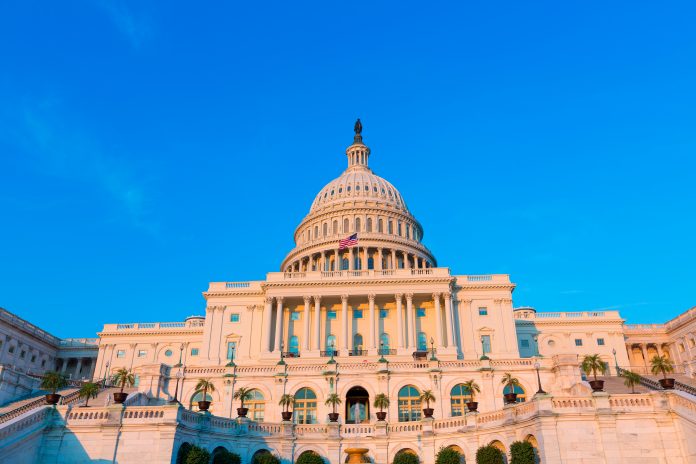Rachel Conant, Senior Director, Federal Affairs, Alzheimer’s Association explains how bold action by the U.S. Congress delivers victory to the millions of people living with Alzheimer’s
With a strong bipartisan vote in an otherwise partisan environment, the U.S. Congress just delivered a victory to millions of Americans currently living with Alzheimer’s disease and their caregivers.
By passing the Building Our Largest Dementia (BOLD) Infrastructure for Alzheimer’s Act (P.L. 115-406), Congress has authorised $100 million over five years (FY20-FY24) to build and enhance the U.S.’s public health response to the Alzheimer’s crisis.
Public health initiatives work at the community level to protect and improve the health and safety of the entire population. This means safe water to drink, vaccines to prevent deadly diseases, interventions to reduce smoking, and emergency preparedness tools to save lives.
Thanks to Congress, working together in bipartisan fashion, we can now also add to that list a nationwide public-health infrastructure that is expanding to promote prevention and improve quality of life for those living with Alzheimer’s.
Alzheimer’s poses a significant threat to our nation, killing more people than breast and prostate cancer combined. Alzheimer’s is the sixth-leading cause of death in the United States, devastating more than 5 million Americans currently living with the disease, as well as their more than 16 million unpaid caregivers.
The Alzheimer’s Association estimates that these unpaid caregivers provided 18.4 billion hours of care valued at over $232 billion in 2017. Equally as staggering is the financial burden Alzheimer’s places on American society, with the direct costs of caring for those with the disease totalling $277 billion in 2018 alone. Unless something is done, the Association projects those costs could rise as high as $1.1 trillion by 2050.
But now, thanks to the BOLD Infrastructure for Alzheimer’s Act, millions across America have reason to be hopeful.
By creating a modern public-health infrastructure, the new law will help: improve early detection and diagnosis; reduce both health disparities and risks associated with avoidable hospitalisations and cognitive decline; enhance support to meet needs of caregivers; and support care planning and management.
To help develop this infrastructure, the BOLD Infrastructure for Alzheimer’s Act authorises $100 million over five years to accomplish three critical initiatives.
Three critical initiatives
1) Establish Alzheimer’s Disease and Related Dementias Public Health Centers of Excellence across the country. These Centers of Excellence will increase the education of public health officials, health care professionals, and the public on Alzheimer’s, brain health, and health disparities. The Centers will also provide technical assistance to public health departments across the country in implementing effective Alzheimer’s interventions and expand innovative public-private partnerships that focus on addressing the cognitive impairment and health disparities.
2) Award funding to State, local and tribal public health departments to implement Alzheimer’s public health interventions focused on priorities like increasing early detection and diagnosis, reducing the risk of cognitive decline and preventing avoidable hospitalisations. This funding will also help public health departments implement strategic actions like those identified in the Healthy Brain Initiative’s Public Health Road Map.
3) Increase the analysis and timely public reporting of data on Alzheimer’s, cognitive decline, caregiving, and health disparities. This data is critical to identifying opportunities for public health interventions, helping stakeholders track progress in the public health response, and enabling state and federal policymakers to make informed decisions when developing plans and policies.
While the CDC is preparing for the Act’s implementation, determinations on awards for the Centers of Excellence and public health departments cannot happen until the Centers receive the FY20 funds appropriated by Congress.
That timing will depend on the appropriations process in Congress this year, but it is likely CDC funding will be awarded and allocated in 2020. In the meantime, the Alzheimer’s Association – working through its advocacy arm, the Alzheimer’s Impact Movement – is continuing to work with allies in Congress and across the country to ensure these initiatives are implemented as quickly as possible.
The sooner we can apply the public-health approach necessary for reducing risk, detecting early symptoms, and supporting caregivers, the sooner we can reverse Alzheimer’s devastating trajectory.
Rachel Conant
Senior Director
Federal Affairs Alzheimer’s Association
Tel: +1 800 272 3900
www.alz.org











